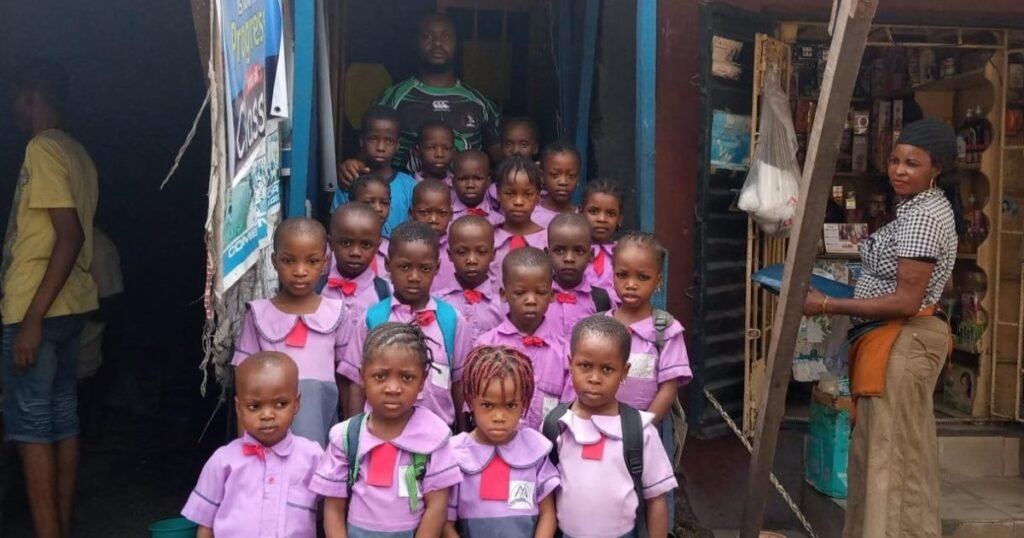Mujanatu Musa, a single mother living in Ajegunle, a slum in Lagos, Nigeria, supports her three children by working as a hairdresser, earning about $1.30 per day. Musa’s irregular income makes it difficult to provide for her children’s education, forcing her to rely on borrowing money from neighbors during dry spells. With the help of a privately run school in the community that accepts payment in used plastic bottles, Musa is able to ensure that her children receive a formal education.
The school, Morit International School, was established by Patrick Mbamarah, a chemistry graduate, in 2010. Facing financial difficulties due to unpaid tuition fees, the school introduced a unique payment system where parents could pay in used plastic bottles instead of cash. This initiative not only provides underprivileged children with access to education but also helps to clean up the environment by recycling the plastic waste. However, logistical challenges and high costs associated with transporting and storing the plastic bottles have put the school’s future in jeopardy.
Despite efforts to secure support from non-profits and the government, Morit International School is struggling to stay operational. Mbamarah, along with a few teachers, is handling multiple responsibilities to keep the school running. A lack of resources and funding has limited the school’s capacity to accommodate more students and provide quality education. While people like Rhoda Adebayo, a dedicated teacher, are doing their best to manage the growing student population, the school faces the risk of closure without additional support.
Debo Adeniyi, an expert from a non-profit organization, emphasizes the importance of supporting initiatives like Morit International School to reduce plastic waste and improve education access for underprivileged children. By addressing the out-of-school children crisis in Nigeria and promoting environmental sustainability, the school’s plastic-for-tuition program has garnered praise and recognition. Adeniyi suggests seeking more partnerships with recyclers to streamline the plastic collection process and alleviate the burden on the school.
For parents like Mujanatu Musa, the potential closure of Morit International School would have devastating consequences. Without the affordable tuition payment option offered by the school, Musa fears that her children may join the millions of out-of-school children in Nigeria. Her concern highlights the importance of sustaining initiatives like Morit International School, which not only provide education but also serve as a lifeline for struggling families in low-income communities. As efforts continue to secure support and address operational challenges, the school remains a beacon of hope for children like Musa’s, offering a brighter future through education.












